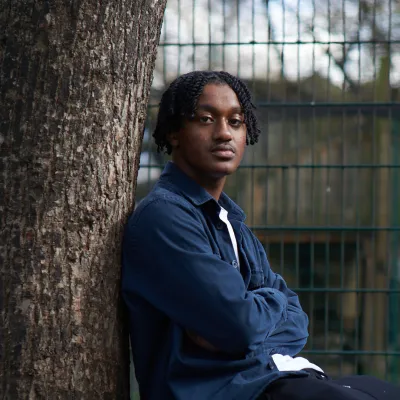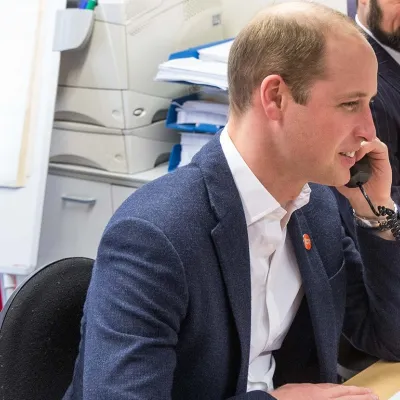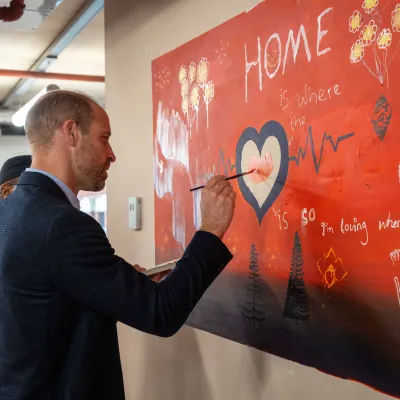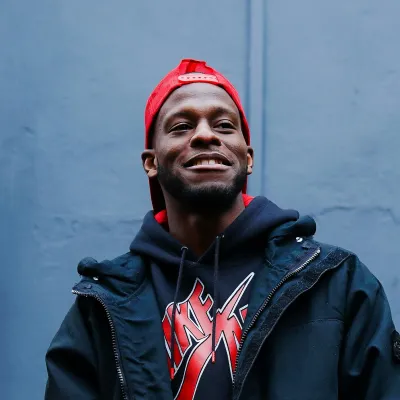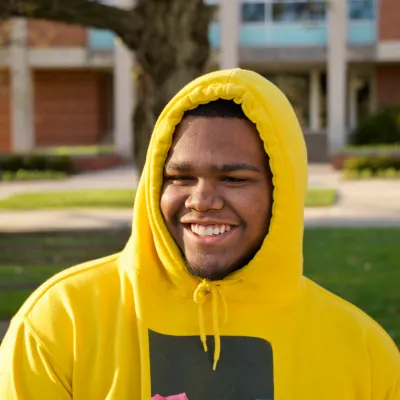An education is an essential pathway into a good job for most - but for homeless young people, it can be what takes them out of a life of poverty and rough sleeping, and gives them a chance to create their own futures. But from the very start, getting into higher education can be a struggle in itself.
Imagine this: you’re on the bus to your first day at college. Or perhaps you’re getting ready for your first lecture at your new university. You flick through the textbooks, making sure you have the right ones you need, plus pens and pencils to take notes, highlighters for noteworthy passages, and notebooks to scribble ideas in. Maybe you’re forgoing the notebook in favour of your laptop. You can’t wait to meet the people on your course and make a good first impression.
Taking your rightful place in a classroom is exciting. But for the vulnerable young people Centrepoint helps, this isn’t always the case. It’s stressful. Even before they’ve taken a seat at the table, problems often occur. They might not be able to afford the bus fare to get them to campus, or if they can, they might not have all the textbooks required for the course once they get there because they’re too expensive. For many, it’s not a choice of notebook or laptop, it’s a choice of buying a notebook or eating lunch that day.
And, of course, there is the lack of safe spaces: it is incredibly hard to study if you are in the midst of a family relationship breakdown, or caring for sick family members, which many are. Others don’t have a place to sleep, let alone study. For a myriad of reasons, there are plenty of young people that are left rough sleeping: “I’d stay awake all night because I was scared of the dark. I’m still scared of the dark now. I’d have to sleep when it was light outside," said one young person.
Without adequate rest, our brains don’t function as they should: studies show that when we’re sleep deprived our focus and attention tends to drift, which makes it more difficult for our brains to receive information. Overworked neurons lose the ability to co-ordinate information properly and thus struggle to access information we’ve previously learned.
So already, most vulnerable young people are chasing to catch up to their peers. Many of those who pass through our doors defy the odds to make it into education. “I graduated from university last year. Only six percent of care leavers go to university and only four per cent graduate, so to be part of that statistic is my biggest achievement and something I’m really proud of,” says Gareth, a former Centrepoint resident.
Of course, these hardships have only intensified since Coronavirus. Apprentices are not able to finish their courses and students cannot return to their studies. It’s thought that, along with a number of other changes that seem to be cementing themselves into permanency in the wake of Covid-19, universities could start virtual teaching full-time. Equipment has now become an essential for those who have been asked to continue their studies from home and access online resources in preparation for the new term in September. But what if you have no home to study from? And where does this leave the young people who rely on their university or college’s library and IT suite?
Despite the struggles young people have to get in and stay in education, particularly during this tumultuous moment, so many young people helped by Centrepoint are endlessly excited about continuing their studies. In fact, often their experiences drive them and cement their career paths. Ramona* is currently excelling in her Medical Science BTEC at college; with distinctions across the board, she says she’s aiming for nothing less than a First Class Honours at university. “Eventually, I want to be a psychiatrist and work with people that have experienced trauma like I have,” she says.
It’s crucial that young people stay in education, not only because they deserve it, or because it’s so hard fought for, but because ultimately, it’s what will help them escape the cycle of homelessness for good. Here at Centrepoint, our focus for all young people is “A Job and a Home” – education is a crucial part of this, supporting young people to independence both physically and financially. So many don’t have family to turn to for help with costs or support, and that’s where we come in: we help those who are struggling with payments of textbooks, essential equipment and even their bus fare.
But at its core, our support means so much more than just help with vital expenses. It gives homeless and vulnerable young people something they've never been given: possibilities. Opportunity. The chance to decide their own futures. And what could be more valuable than that?

